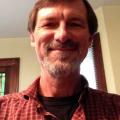The night started with a radical welcome and ended with 90 seconds of horror.
Every Wednesday night at 6 p.m. in Charleston, S.C., one of the oldest historically black churches in the country opens its doors to whoever wants to join them for a Bible study in the church basement.
Emanuel African Methodist Episcopal Church traces its roots to the days when black people were unloaded from slave ships nearby and sold as property. The church has been attacked many times by people who didn’t want black people treated as equally beloved children of God. Church members have been arrested, beaten, and executed. A crowd of angry white people burned the original church to the ground in 1822.
And yet, this church that’s been so often hurt and abused by outsiders has continued to open its doors to outsiders every week. They invite everyone to come and join them, even people who don’t like them.
People like Dylann Roof, a young white man who walked through the front doors last June 17, joined an hour-long Bible study, and shot nine church members dead. He killed people who were doing the most Christian thing — welcoming him, just as he was, into the very center of their church.
He accepted their radical welcome and responded with hatred. The very same kind of hatred that led Omar Mateen to walk into a gay nightclub in Orlando last weekend and kill 49 people.
Once again, we’re wounded and numb and confused. We’re angry and wondering why we as a people have allowed our hatred and our violence to become the defining traits of our nation. We wonder how many more times someone’s spouse or parent or child is going to be slaughtered before we acknowledge that that the status quo is unacceptable and it must change now.
After a while, we grow weary from the body count. The gun lobby and bought-off politicians refuse to do much if anything about the carnage. It’s easy to slip into despair and anger, to wonder what we must do next.
And then we look to Charleston on a Wednesday night, and see the doors flung wide open.
Something incredible happened there after the murders. Family members publicly forgave the killer. People filled the church the following Sunday — some sitting on the very spot where blood had to be cleaned from the floor – and proclaimed their commitment to compassion and forgiveness.
And the next Wednesday night, they did what they’d always done on Wednesday night. They held a Bible study. They welcomed anyone who was interested. This time, news reports say about 150 people of different races, faiths, and backgrounds sat together in the same room where nine people had died and committed themselves to the Spirit of radical welcome.
The very place that had been filled with such darkness seven days earlier was filled with warmth and life and love. The topic of discussion that day: the power of love.
Really.
And then there’s the reaction to the Orlando, Fla., shooting. Many people have revved up the hateful talk that influenced both Roof and Mateen. They insist that some people are just too dangerous to be around, too evil to accept. They must be dealt with severely.
“Build walls to ease our fears,” they say. “Bar entry to anyone who comes from a certain country or a certain background. Lock the doors to those whom we dislike.”
Contrast that to what’s going on at Emanuel. To remember the shootings a year ago, they’re asking people to participate in a day of kindness. Next Tuesday, they want each of us to do something kind for someone and tell them about it on the church’s website. They’re calling it Acts of Amazing Grace Day.
They take seriously the stories of a Jewish rabbi from long ago, and they try to live the way he lived. They accept everyone, because that’s what he did, even when he was harshly criticized for it. They live the spirit of radical welcome.
This welcome thing: It’s not a popular notion, then or now. It’s part of what got the rabbi killed. The truth is, this radical welcome stuff is challenging and upsetting and dangerous. It’s much easier and safer to hide behind walls. It takes great courage and great love to open ourselves to others, but it’s the only way out of the deep darkness we’ve chosen.
Then and now, great love is the only thing that can overcome. It overcomes by showing a different way – a way that cleans up the blood and opens the doors wide again.
And changes everything.
Got something to say about what you're reading? We value your feedback!

